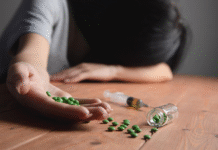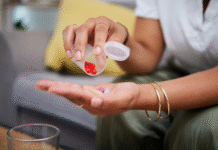A large number of individuals are seeking alternative means of taking care of their mental well-being. The path to psychological health is a very intimate one and, in some cases, it entails exploring the natural antidepressants. Such choices may provide a supportive position in depression and anxiety symptom management.
Here, we’ll discuss different natural methods, starting with lifestyle modifications to certain supplements, which can have a positive effect on your mind. We will discuss adult, teen, and even kids’ opportunities, and it will be our guide to such effective variants.
Understanding the Role of Natural Antidepressants
When discussing natural antidepressants, we mean a wide group of treatments and compounds, which can be used to relieve depressive symptoms. They are not solutions but the elements of a comprehensive approach to mental health. They may act by acting on neurotransmitters, by lowering inflammation, or by treating nutritional deficiencies, which may affect mood. Combining these strategies may supplement or be used as an underpinning to your mental health process.
One should approach these alternatives with a realistic approach. They are potent resources, though, and you should never initiate any new supplement or make any sweeping alteration in your lifestyle, particularly when you are under medication.
The Best Natural Antidepressants: Lifestyle Foundations
It is better to note that some of the best natural anti-depressant plans are in relation to your daily routine before you resort to supplements. Good mental health is rooted in the lifestyle that you lead.
The Power of Physical Activity
One of the most effective instruments for fighting depression is exercise. Exercise enhances endorphins, which are natural mood elevators within the body. It also enhances the synthesis of important neurotransmitters such as serotonin and dopamine, which are important in controlling mood.
You do not necessarily have to run a marathon in order to experience the benefits. Moderate exercise, when done consistently, can help a great deal. Consider activities like:
- 30 minutes of brisk walking a day.
- Cycling or swimming
- Yoga, which is a form of body-mind movement.
- Team sports or dance classes
The trick is to do something you like, and then it can be easily maintained in the long run.
The Gut-Brain Connection: Nutrition’s Role
The food you consume directly influences your mood. A whole food diet contains all the nutrients that your brain requires to work to the best of its abilities. Mental health can be especially useful in an anti-inflammatory diet.
Pay attention to using the following foods in your meal:
- Omega-3 Fatty Acids: The sources of this type of fat are fatty fish (salmon, mackerel), walnuts, and flaxseeds. Omega-3s play an important role in the health of the brain.
- Lean Proteins: The proteins that contain amino acids that can be converted to neurotransmitters include Turkey, chicken, and beans.
- Complex Carbohydrates: Whole-wheat bread, quinoa, and oats stabilize blood sugar and keep one in a consistent state of mood.
- Complex Carbohydrates: Whole-wheat bread, quinoa, and oats stabilize blood sugar and keep one in a consistent state of mood.
On the other hand, attempt to reduce processed food, sugary beverages, and high amounts of caffeine because these may contribute to change of mood changes and energy depletion.
Prioritizing Sleep for Mental Resilience
Depression and anxiety may be aggravated by insufficient sleep, and difficulty in sleeping may be brought about by depression. This cycle can be broken by creating a comfortable sleep atmosphere and routine.
The following simple measures can be used to enhance sleep hygiene:
- Adhering to a normal sleeping-waking routine even during weekends.
- Establishing a calming pre-sleep habit, e.g., reading or a hot bath.
- Making your bedroom dark, quiet, and cool.
- No screens (phones, tablets, TV), no less than an hour before going to sleep.
Supplements for Depression and Anxiety
Certain supplements may offer aid to individuals. These are the natural substitutes of antidepressants, which can be used to address nutritional deficiencies or offer compounds that can directly impact the brain chemistry. Never wear a new supplement without first consulting with a doctor.
Omega-3 Fatty Acids
The omega-3s are essential, as discussed in the nutrition section. A good supplement to add to your diet in case of insufficiency of sources is a good-quality fish oil supplement. Particularly, two primary forms of omega-3s that are associated with the advantages to mental health are eicosatetraenoic acid (EPA) and docosahexaenoic acid (DHA).
SAM-e (S-adenosylmethionine)
SAM-e is a naturally produced compound of the body. It has a contribution in many body processes, one of them being the production of neurotransmitters. Certain research has established that SAM-e supplements have the potential to be equally effective as some prescription antidepressants, and with fewer side effects. It can be bought without a prescription and is costly.
Vitamin D
Vitamin D, also known as the sunshine vitamin, is essential to a variety of health areas, including mood. Most individuals lack adequate levels, particularly those in areas with limited sunshine. It can be tested by a mere blood test to identify a deficiency. In that case, a supplement will be able to replace your levels, and it can improve depression symptoms.
Natural Antidepressants for Teens and Kids
The approach that should be taken in supporting the mental health of the youth is very delicate and sensitive. Though the first and safest mode of defense is lifestyle changes, some natural options are also subject to consideration with professional advice.
Natural Antidepressants for Teens
Adolescence is a period of great transition, and sadness or anxiety is normal. The discussed lifestyle factors —exercise, nutrition, and sleep —are the most essential for teens. It is also essential to be able to communicate openly with a trusted adult.
- The core of the consideration of the use of natural antidepressants when it comes to teens should be on safety and light support.
- Mindfulness and Meditation: Tricks such as mindfulness may assist teenagers to cope with stress and control their emotions. These practices are quite accessible with the help of apps and internet-based resources.
- Herbal Teas: Chamomile or lavender tea may also help to induce better sleep, which indirectly helps mood.
- Omega-3 Supplements: They are said to be generally safe with teens, and they can help the brain develop and improve mood.
Natural Antidepressants for Kids
As a child, the measure should be even more careful. Behavioral and environmental factors should always be considered as the major focus. The most effective tool is the ability to create a stable, loving, and supportive home environment. The natural alternatives are some softer ones:
- A Healthy Diet: The child should be fed a healthy meal that does not contain many sugars and processed foods that would stabilize his mood and energy levels.
- A lot of Outdoor Play: Physicians have established the positive impact of physical activity and nature on the mental health of a child.
- Probiotics: There is new evidence on the relationship between gut health and child mood. Probiotic foods (such as yogurt) in a diet, or a child-specific probiotic supplement, can be helpful.
End Note
Natural antidepressants provide a natural alternative to synthetic drugs to improve mood and emotional health. They assist in harmonizing the chemicals in the brain naturally by the use of nutrients, herbs, and changes in lifestyle, and alleviate depression and anxiety symptoms. Constant physical activity, meditation, and a healthy diet are also strong natural mood enhancers. The importance of natural antidepressants is that they have few side effects, long-term effects, and they have the ability to enhance the general well-being.
To get more information about the use, benefits, and potential risks, you may consult Mental Behavioral. However, it’s strongly advised to seek help from a qualified mental health professional who can assess your condition and prescribe appropriate treatment. Consulting a professional ensures safe and effective care, helping you find the right approach to manage your symptoms and improve overall mental health.
FAQs
What are the most effective natural antidepressants?
The most effective “natural antidepressant” is often a combination of lifestyle strategies rather than a single pill or supplement. Regular exercise, a balanced diet rich in omega-3s and whole foods, and adequate sleep form the most powerful foundation for mental well-being.
Are there natural antidepressants for kids?
Yes, but they look different from what they do for adults. For kids, the best natural approaches are behavioral and environmental. Gentle options like probiotics may offer some benefit, but any intervention should be discussed with a pediatrician.
What are the best supplements for depression?
Several supplements have research backing their use for depression. Omega-3 fatty acids are excellent for brain health and mood. Vitamin D can be helpful if you have a deficiency.







